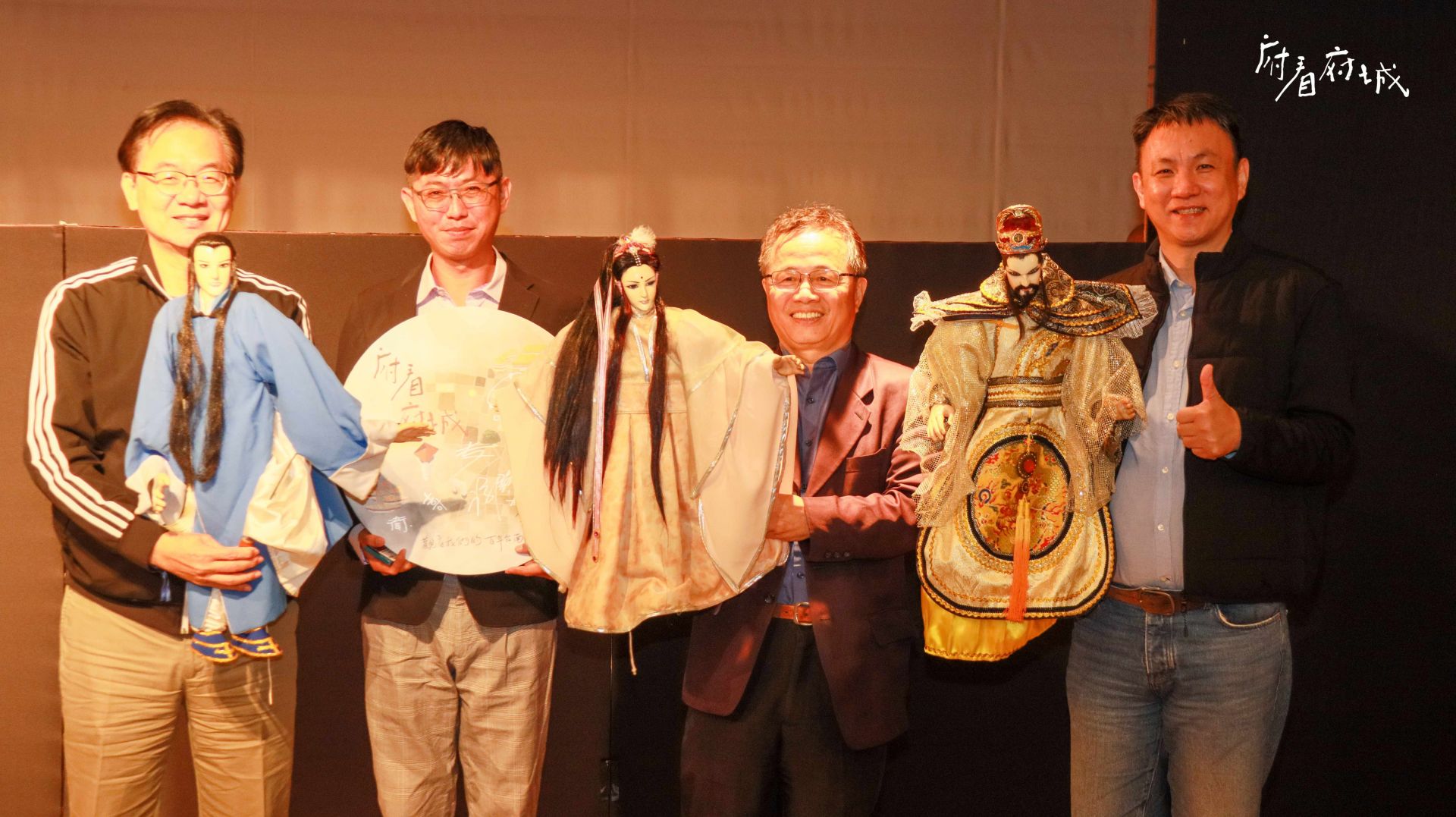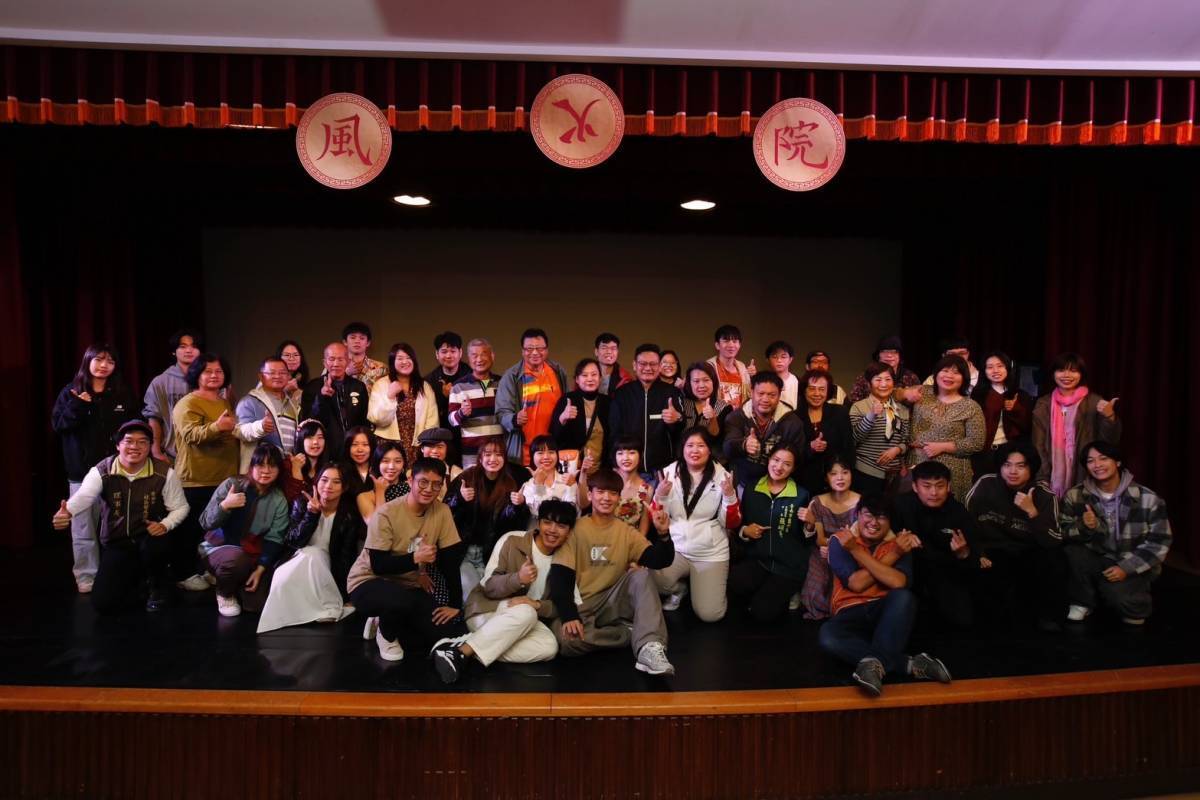On February 10th, the research team of National Cheng Kung University's Center for Humanities and Social Sciences organized the "Pingtung Dementia-Friendly Social Consensus Workshop" with the participation of the Pingtung County Government and the local community. The workshop was held at the Pingtung Hakka Cultural Center. Before the Lunar New Year, the NCKU team met with the newly appointed county government team to establish a consensus on mutual cooperation and to address the urgent issues of dementia and elderly care after the Lunar New Year.
In response to the call of Vice Governor Huang, more than 30 representatives from related departments of Pingtung County Government participated in the workshop. These representatives included the Health Bureau, Social Affairs Department, Long-term Care Management Center, Hakka Office, and Education Department, which have been working in Jhutian Lechi Friendly Park for many years. Academics, public departments, and dementia-friendly civil organizations gathered to share their implementation experiences and discuss local difficulties in depth. They explored different strategies and solutions across different fields, opening a cross-disciplinary "North-South Connection" experience exchange with other participants. It was like a Pingtung Local Dementia-Friendly Theme Summit.
"Vice President Yuh-Neu Chen of National Cheng Kung University, who is also the facilitator of the research project, said, "We are honored to have so many distinguished guests and senior officials, as well as numerous colleagues from National Cheng Kung University who are concerned about the development of a dementia-friendly society in Pingtung. We are grateful to the National Science and Technology Council and the Pingtung County Government for their support, which has enabled us to realize our shared sense of social responsibility. We look forward to a brighter and more elder-friendly future from here."
During the first half of the workshop, a team from National Cheng Kung University and the Pingtung County Government held a stocktaking discussion to integrate the internal resources of each bureau and program, consider the linkages that can be created together to create a dementia-friendly community, and establish a foundation for multilateral cooperation. In the second half of the event, the participants were led through a "World Café" discussion to explore problems, develop strategies, and identify specific response actions. This provided an opportunity for in-depth communication on the issues, summarized pragmatic directions to face each issue, and broke through the business-oriented framework of fixed bureaus.
Yu-Che Chen, a member of the Health Bureau of the New Taipei City Government, was invited to Pingtung as an expert to manage the "Ageless Longevity Village" in Pingxi. He said, "I am glad to come here to experience the enthusiasm of Southern Taiwan, and I admire the high level of commitment and effort of everyone. We are looking forward to seeing the public slowly join the dialogue and participate in the promotion of dementia-friendly policies in Pingtung in the near future. From the experience of New Taipei City, it is the joint commitment of the people that has given us the most touching and powerful feedback and support."
At the end of the World Café discussion, the participants worked together to summarize the realistic situations that need to be solved, proposed strategic directions, and suggested possible future funding, manpower, and resource deployment ideas to be undertaken practically. The discussion leader, Associate Professor Ling-Hui Chang from the Department of Occupational Therapy, compiled the presentation."
"Based on their implementation experiences from different business backgrounds, the workshop participants jointly summarized the realities that need to be addressed in the face of dementia-friendly subjects such as "dementia/caregivers," "local partners," "school education," and "the general public." These realities include "dementia stigma," "insufficient manpower and resources," "insufficient professional knowledge," "insufficient local consensus," and "lack of a systematic industrial mechanism." The participants also proposed strategic directions, such as "promoting the mainstreaming of dementia," "establishing a systematic education and training mechanism," and "empowering those with dementia." They further suggested ideas for future funding, manpower, and resource allocation that could be implemented practically.
The local community development plan, which uses Ping An Village in Pingtung Xishi as a reference case, is about to begin. The workshop provided an in-depth discussion on the extension of the development with the cooperation of many parties, which will undoubtedly lay the foundation for the development of a friendly society in Pingtung. The compiled information is expected to be used to guide future efforts."
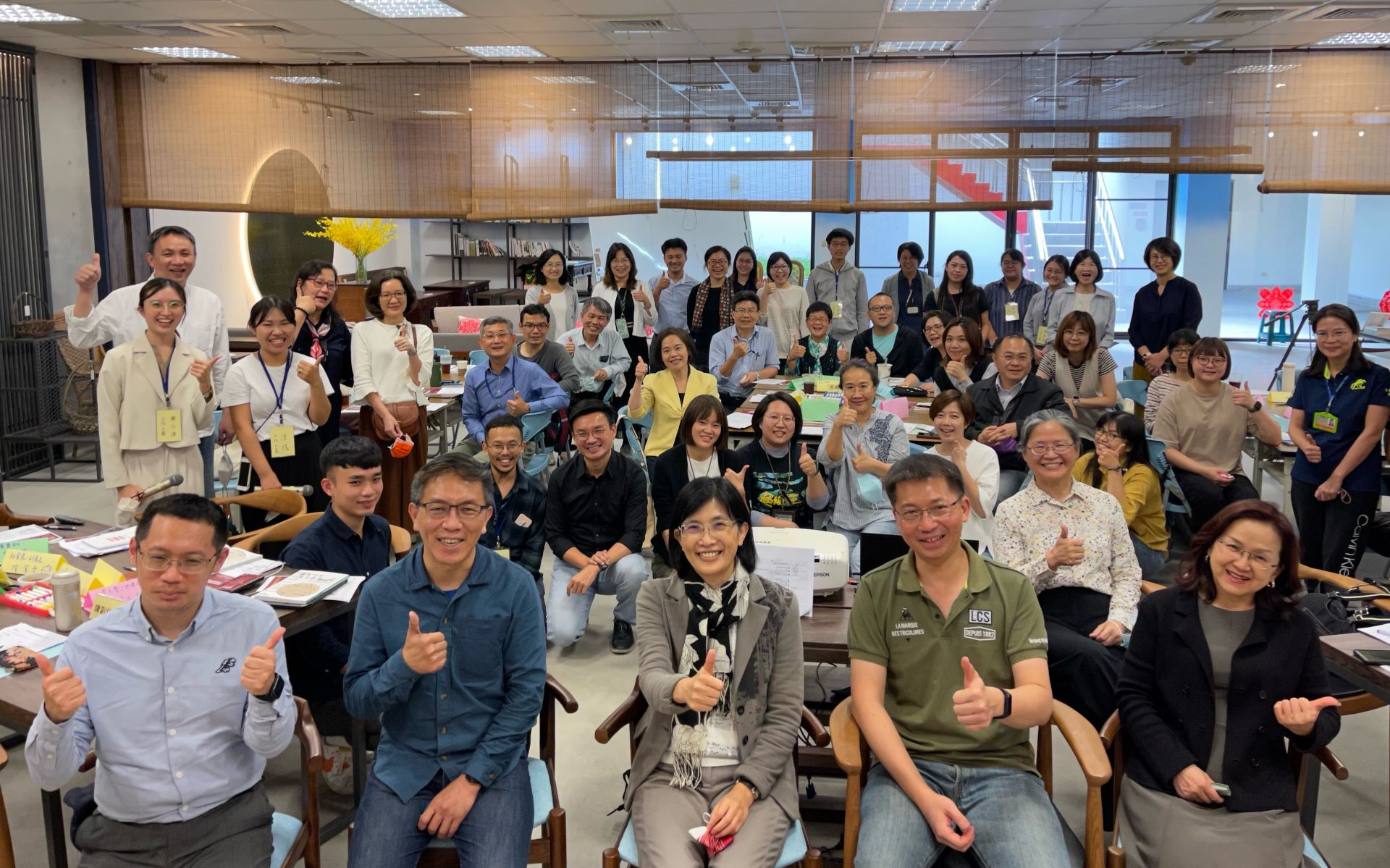
Over 30 representatives from various departments of the Pingtung County Government participated in the workshop.
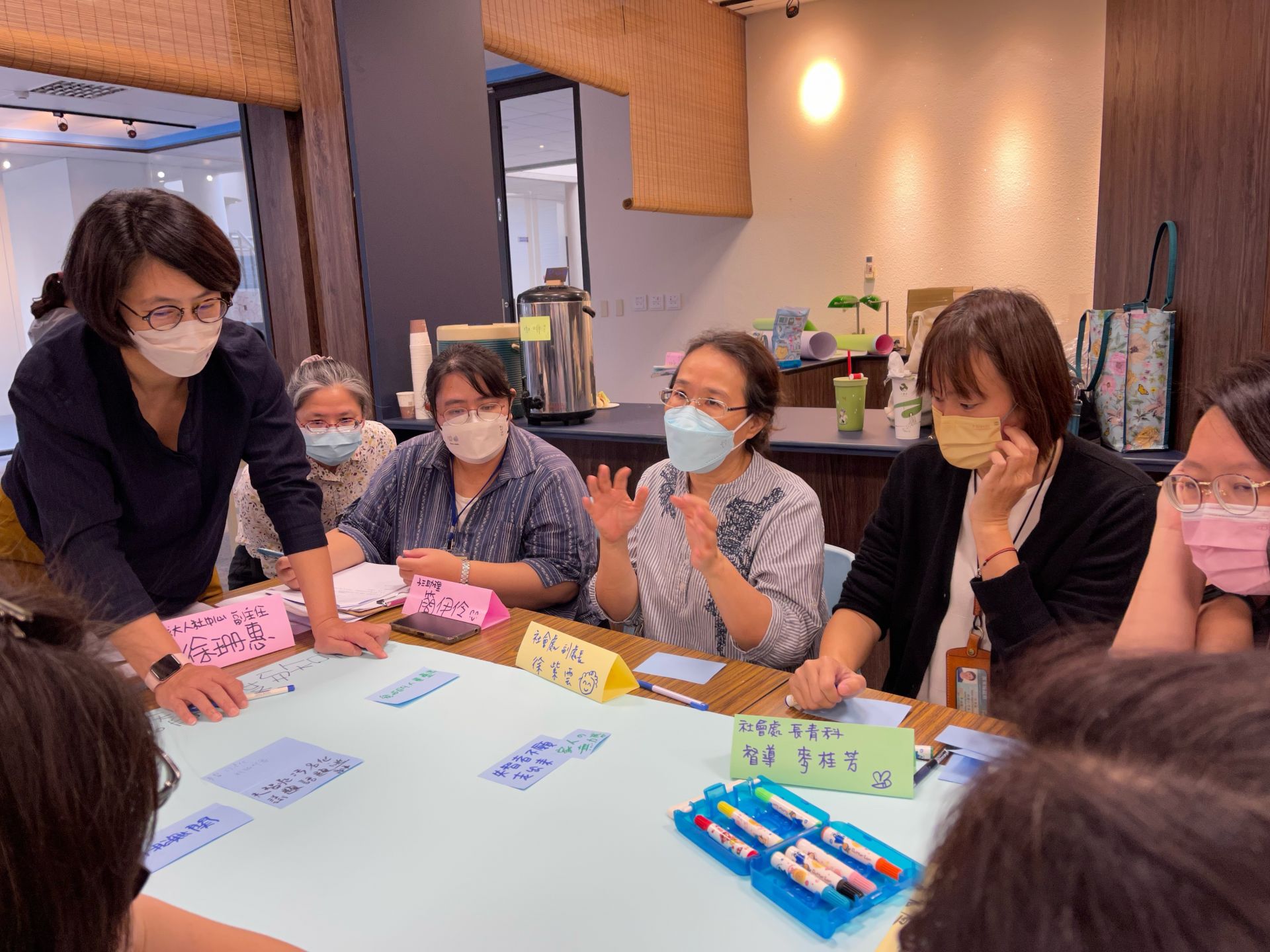
The team from NCKU acted as the discussion leader, facilitating a cross-bureau and cross-disciplinary exchange of internal resources to explore the situation and response strategies for the "Lè Zhì" (樂智) friendly social issues.
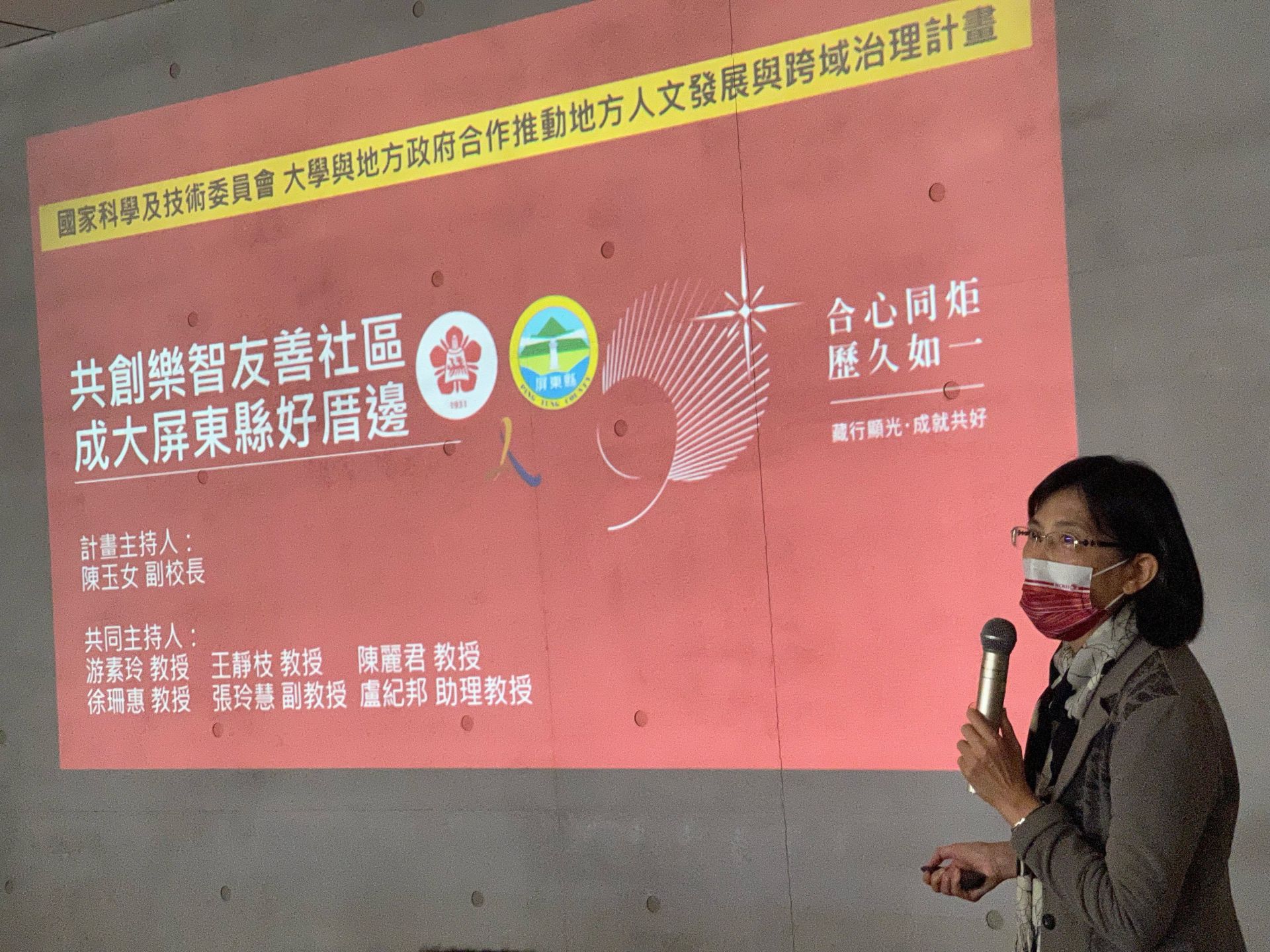
Vice President Yuh-Neu Chen presented the program structure and outlined the resources and directions that can be utilized in collaboration with the county.
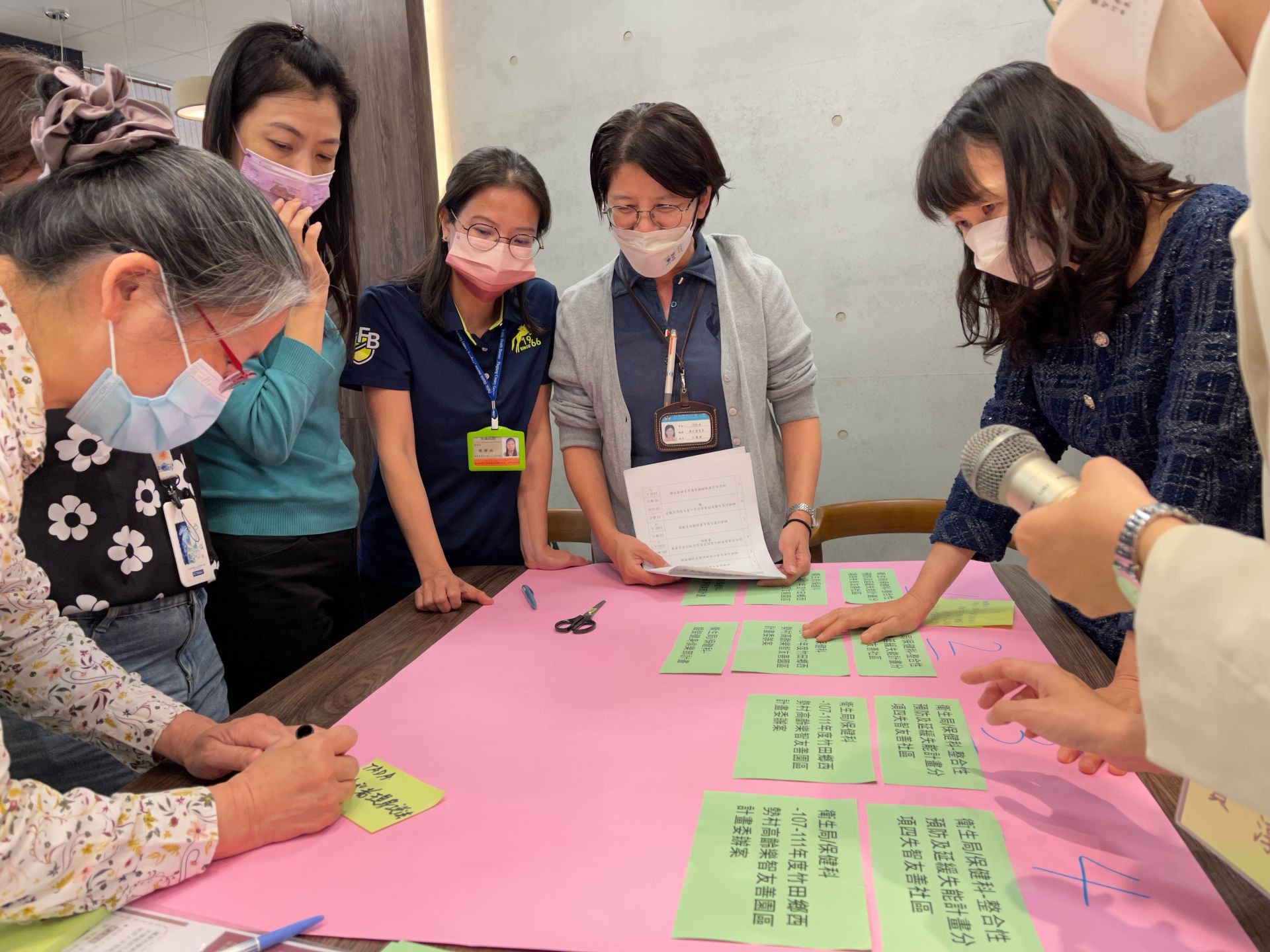
Project co-facilitator Prof. Jing-Jy Wang accompanied her colleagues from the Pingtung County Health Department to assess their internal resources.
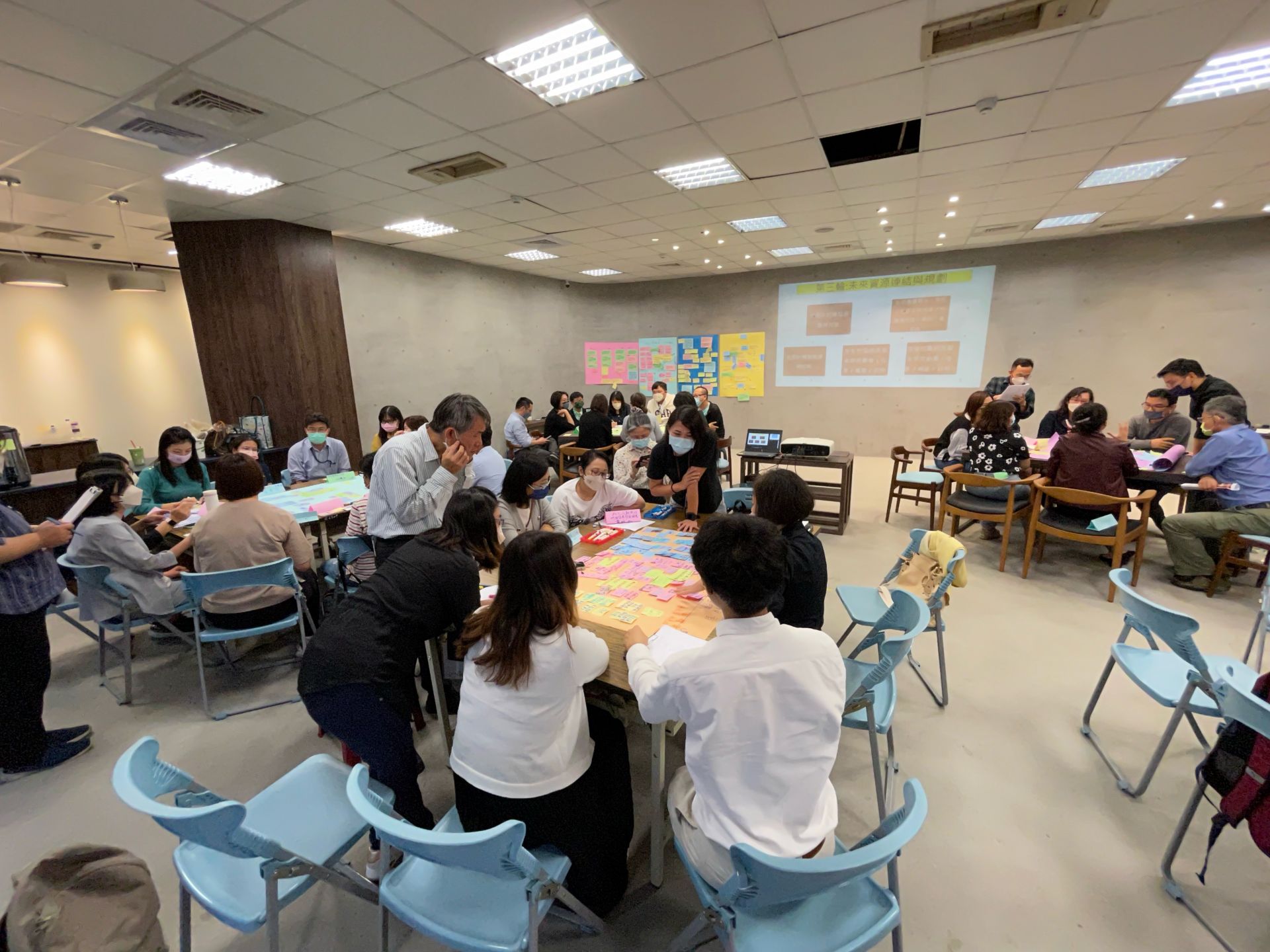
The team from NCKU acted as the discussion leader, facilitating a cross-bureau and cross-disciplinary exchange of internal resources to explore the situation and response strategies for the "Lè Zhì" social issues.
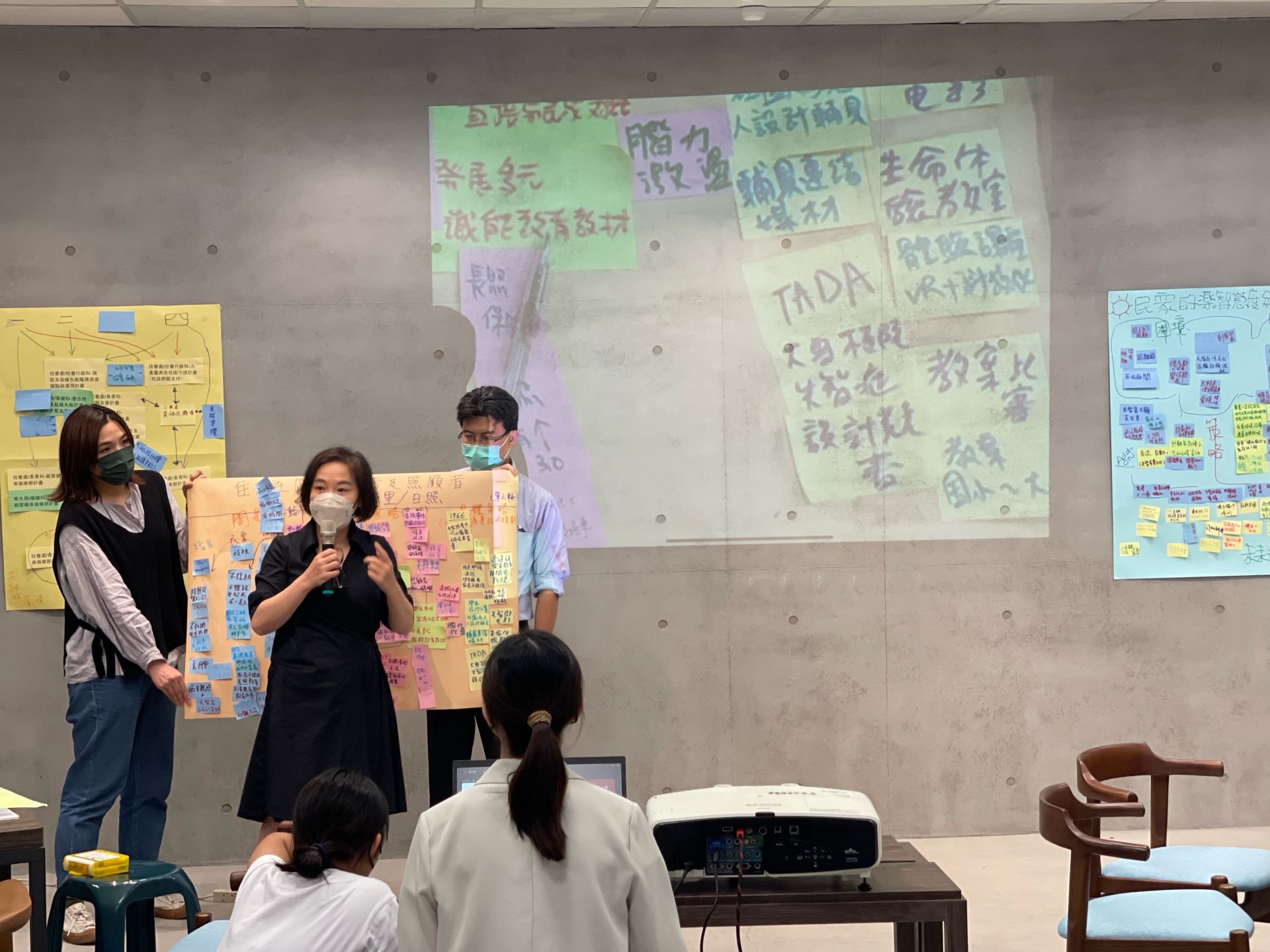
The discussion leader, Associate Professor Ling-Hui Chang from the Department of Occupational Therapy, compiled a presentation summarizing the discussions at the end of the World Café.





